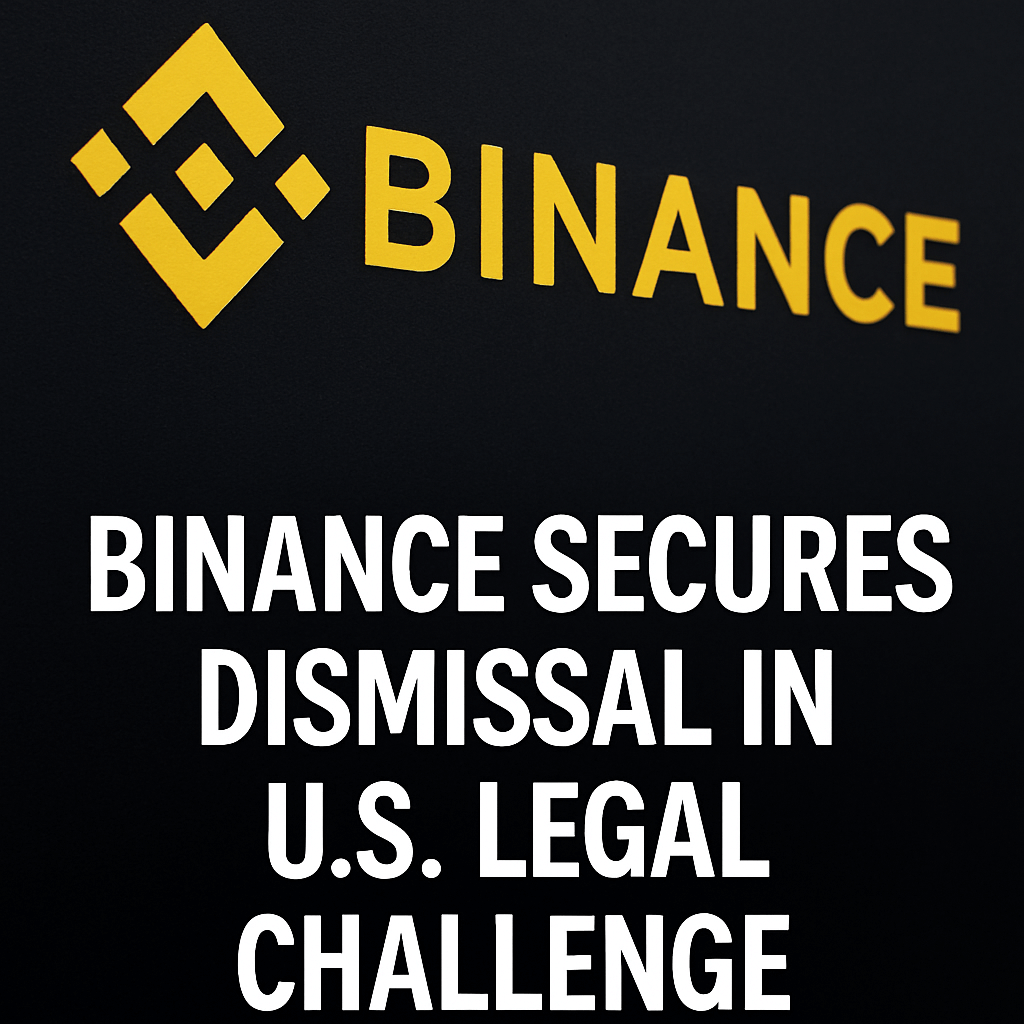Binance Secures Dismissal in U.S. Legal Challenge

Binance and SEC Announce Joint Dismissal
In a joint filing submitted on Thursday to the U.S. District Court for the Southern District of New York, Binance Holdings Ltd. and the Securities and Exchange Commission (SEC) formally requested dismissal of the high-profile lawsuit filed in 2023. The agreement brings to a close one of the most consequential enforcement actions against a major cryptocurrency exchange in American history.
Background: Evolution of U.S. Crypto Regulation
Since the collapse of FTX in late 2022, the SEC under former Chair Gary Gensler filed a series of lawsuits against industry players, including Binance. The agency’s 13-count complaint accused Binance of:
- Allowing U.S. customers to trade offshore without proper registration;
- Mishandling user deposits and commingling funds;
- Offering unregistered securities, including its native BNB token and various staking products.
Those charges, described by Gensler as part of an “extensive web of deception,” sought civil penalties, disgorgement and permanent injunctions. Industry lobbyists responded with a concerted campaign that included more than $130 million in political spending and outreach to key lawmakers.
Technical Infrastructure and Compliance Measures
Throughout the legal battle, Binance pointed to its multi-tiered compliance framework:
- KYC/AML Systems: Automated identity verification using biometric checks and third-party data providers, supporting up to 1,000 verifications per minute.
- On-chain Analytics: Integration of blockchain monitoring tools capable of flagging suspicious transactions in real time, tracking flows across 35 chains.
- U.S. Entity Segregation: Binance.US, the domestically registered affiliate, enforces stricter trading limits and asset listings in line with SEC guidance.
These measures, Binance’s legal team argued, align with global best practices and surpass the regulatory requirements in major jurisdictions such as the EU and Singapore.
Market and Investor Implications
The dismissal is expected to have immediate effects on both institutional and retail participation in crypto markets:
- Trading Volume: Binance reported average daily volumes north of $20 billion in Q1 2024. The removal of legal uncertainty may boost liquidity by an estimated 15% in the U.S. segment.
- Token Listings: Projects previously paused for regulatory review may resume applications, accelerating token issuance pipelines.
- Custody and Staking: Greater confidence in lending and yield products could drive growth in decentralized finance (DeFi) integrations.
Expert Analysis
“This resolution underscores a shift from enforcement-first to regulatory-framework approaches,” said John Smith, partner at Regulatory Law Group. “Exchanges that invest in robust compliance technology will win long-term trust.”
“Binance’s ability to demonstrate end-to-end auditing and real-time surveillance was a game-changer,” noted Dr. Laura Chen, blockchain analytics specialist at FinTech Insights.
Geopolitical Ramifications
Beyond U.S. borders, the case has influenced policy debates in Europe and Asia. Regulators in the EU’s Markets in Crypto-Assets (MiCA) framework and Japan’s FSA have cited the SEC battle when drafting licensing standards.
Next Steps for Binance and the Industry
With the lawsuit dismissed, Binance plans to:
- Enhance its RegTech stack by integrating AI-driven risk scoring models;
- Expand institutional custody services under the newly reacquired trust charter;
- Collaborate with the SEC on a formal rule-making roadmap for digital assets.
Industry observers view this outcome as a pivotal moment, potentially heralding clearer regulations and greater mainstream adoption over the coming years.